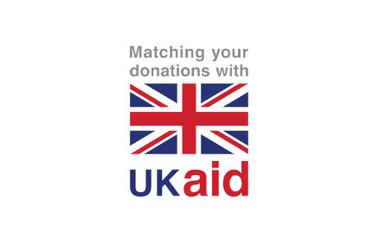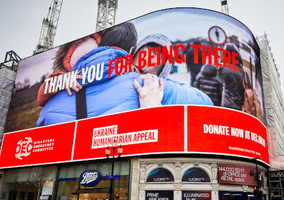The government’s UK Aid Match (UKAM) scheme, which provides match funding for chosen charity appeals, could be at risk of “charity washing”, a new report says.
All charities taking part in UKAM are “asked to factor how they will engage parliamentarians into their campaign”, according to the report by the All-Party Parliamentary Group (APPG) for Aid Match, which formed in December last year.
Its report states that no UKAM documents specify why it was felt that UK politicians were well placed to publicise the appeals, which could suggest ministers draw reputational benefits from it.
Charities told to feature politicians in campaigns
All charities taking part in the Foreign, Commonwealth and Development Office (FCDO)’s match-funding scheme are “asked to factor how they will engage parliamentarians into their campaign”.
This requirement is outlined in UKAM guidelines, application forms and reporting procedures.
One publicly available document states that applicants must “identify at least one opportunity for ministerial involvement” in their campaigns.
Examples of this involvement include attending an event, taking part in a challenge, or social media activity celebrating the appeal with the charity.
None of the published documents make clear why it was felt that UK politicians were well placed to publicise UKAM appeals, the report states.
“This raises the possibility that ministers may have requested that they be involved in UKAM communications – not to make the appeals more effective – but to generate favourable publicity of themselves,” it reads.
Research shows that politicians are “relatively ineffective messengers in overseas aid and development campaigns” compared to aid workers or volunteers, the report reads.
“This is significant because the ministerial code warns that, ‘ministers should [...] avoid any criticism that a minister is using his or her official position to influence or take the credit for donations to charity’,” the report says.
It adds: “Why, since its formation, are explicit and restrictive obligations that promote the government’s image imposed on NGOs?
“Is UKAM a meritocratic NGO platform and does it therefore provide the public with true democratic choice, or is it ‘charity washing’? This landmark report suggests the latter.”
‘NGOs’ ability to publicly criticise UK government’
Several documents indicate that the requirement for NGOs to include parliamentarians in their appeals originated from a request by ministers themselves, the report says.
The 2019 annual review into UKAM states that, ‘the UKAM team has looked at options for further communications and engagement as requested by ministers’.
“The FCDO’s apparent ability to oversee and influence NGOs communications within UKAM and its capacity to draw reputational benefits from the scheme for itself may have important implications – both for the effectiveness of the scheme, and for NGOs’ ability to publicly criticise UK government aid spending,” the report says.
The report was commissioned by Renu Mehta, the founder of the APPG for Aid Match and of pro-reform organisation Real Aid.
Mehta said the report implies widespread advertising of the UKAM logo may give the “misleading impression” that a larger proportion of taxpayer-funded aid is going to appeals than it is.
Since 2011, £331m of UK aid funds have been allocated to UKAM to match-fund 178 different campaigns. Some 30% of this has been spent on Disasters and Emergencies Committee (DEC) appeals.
Recommendations for the government
The report makes six suggestions to government.
- Increase the proportion of UKAM allocated from 0.2% of ODA to 2% and increase the diversity of NGOs benefitting from UKAM.
- Commission a study to investigate benefits of UKAM’s development outcomes, compared to other forms of ODA expenditure to ensure value for the taxpayer.
- Create an open consultation process for NGOs to voice their concerns.
- Remove requirements for UKAM appeals to provide at least 400,000 opportunities for the public to view information about appeals and specify engagement of parliamentarians and government ministers.
- Make all disbursements to UKAM available on an accessible data dashboard.
- Implement wider safeguards to ensure that foreign policy and development are not misdirected by a pursuit of favourable media coverage.












